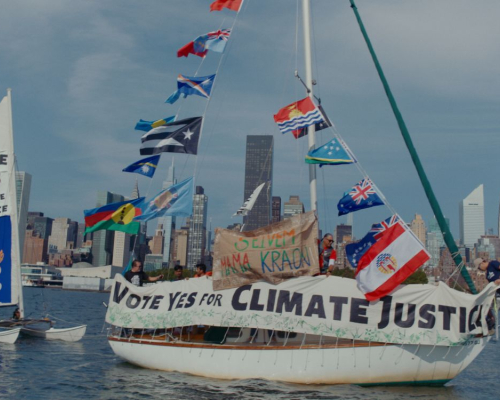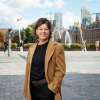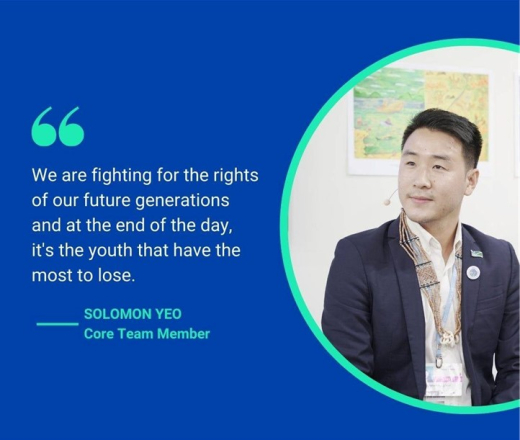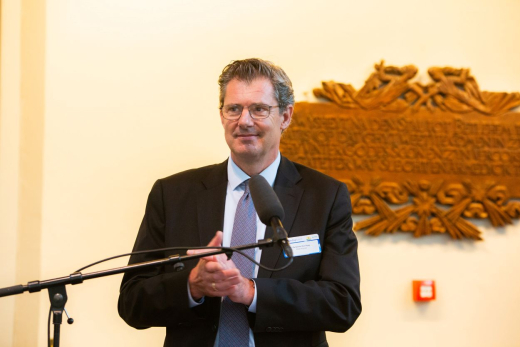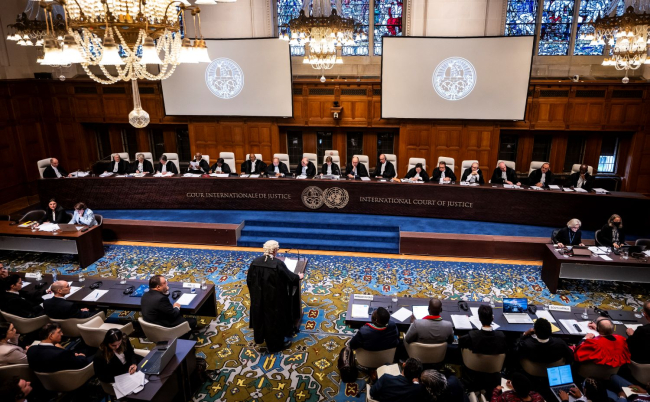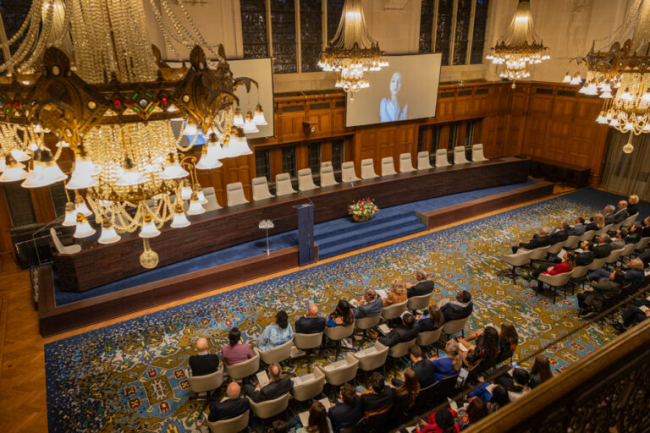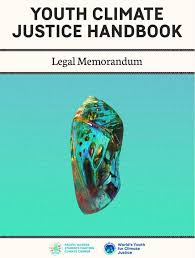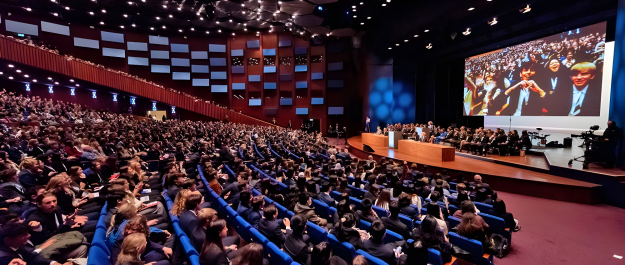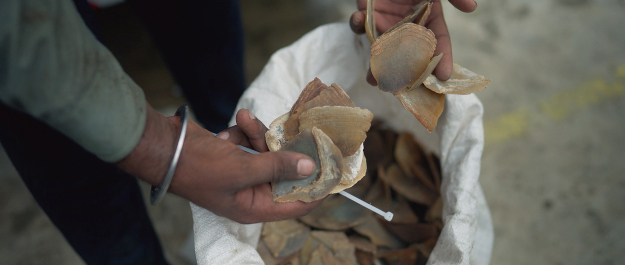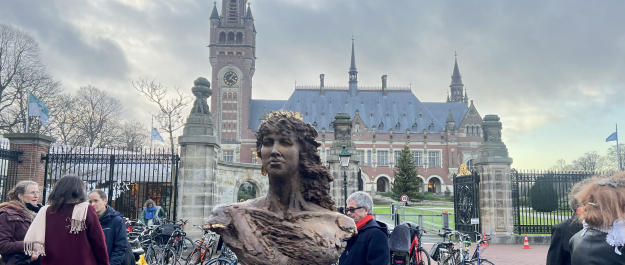The World’s Youth for Climate Justice (WYCJ) is an international movement that joined forces with Pacific youth to inspired a groundbreaking case being heard by the International Court of Justice (ICJ) during December 2024
Climate advocacy
March 2023 marked a huge breakthrough in the international battle to combat climate change. Young people from around the world celebrated as the United Nations General Assembly voted unanimously to adopt a historic resolution requesting an Advisory Opinion on the ‘Obligations of States in respect of Climate Change’ at the International Court of Justice (ICJ) in The Hague.
It was the culmination of five years of advocacy and activism by the campaign group World’s Youth for Climate Justice (WYCJ) and Pacific Island Students Fighting Climate Change.
The first two weeks of December 2024, Ninety-eight States and twelve international organisations participate in the oral proceedings before the Court, with the ICJ delivering its Advisory Opinion on the matter in 2025. Although not legally binding, Advisory Opinions from the ICJ carry huge weight and authority in the international community - so the case offers real hope that national governments will take the action that is needed to try to reverse the impacts of climate change.
WYCJ - An international taskforce to progress climate action
World’s Youth for Climate Justice was founded in 2019 after several young climate campaigners attended COP 25 in Madrid and were deeply moved by the plight of delegates from low-lying Pacific Islands.
PISFCC
A group named Pacific Islands Students Fighting Climate Change - led by Solomon Yeo - had already petitioned the Vanuatu government and was now standing up in front of the most powerful politicians in the world, describing in vivid detail how their low-lying islands were at catastrophic risk from rising sea levels caused by climate change.
“It has become abundantly clear that we can’t rely on politicians to make the crucial interventions needed to combat climate change. The ICJ can apply pressure to UN member states by reinforcing their obligations under UN resolutions to ensure they are safeguarding human rights and the rights of future generations.”
For Aoife Fleming, a UN Youth Representative from the Netherlands, Solomon’s speech was a call to action. She, along with fellow young COP delegates from the Philippines, South Africa, Germany, and other nations - were so affected by Solomon’s presentation, they resolved to mobilize young people all over the world to join forces in the name of climate justice.
“I’d always thought our advocacy was for the benefit of future generations, but, listening to Solomon, I realised, this is not a future threat, it is happening right now. And not enough is being done. It was clear we needed to take this fight from a negotiated process where the lowest common denominator wins, to the world’s highest Court. Young people have a powerful voice when it comes to climate justice - but that voice becomes louder still when we come together to fight for a common cause.”
Global advocacy with a common goal
For the next five years, the fledgling organization began to mobilize young people around the world. Soon, they were campaigning on five regional fronts - with coordinators, advocates and volunteers raising awareness with their own national governments and a central steering committee overseeing global activity.
Much of the work done by WYCJ takes the form of advocacy and lobbying with politicians and policymakers. For young people, it can be daunting dealing with people that are much older and more experienced, but by providing a structured, cohesive message, WYCJ’s argument became impossible to ignore.
Importantly, young climate activists found they now had a forum to connect and exchange ideas. Instead of isolated pockets of activity, they could tap into international resources and collaborations. The WYCJ runs workshops with schools and universities ensuring young people have the opportunity to develop their skills in topics like advocacy and international law.
In 2023, when the UN unanimously voted to take their cause to the ICJ, it was a victory for coordinated international pressure by young people.Soon after, members of WYCJ were invited to the Peace Palace in The Hague to receive The Youth Carnegie Peace Prize, with the jury commenting that the group was “a great example of how young people can cooperate internationally to make a difference.” Carnegie Foundation president Piet Hein Donner added that the effect of so many young people coming together for the same cause was “like many candles lit to chase away the impending darkness”.
Young people at the heart of international climate law
The oral proceedings are underway at the ICJ, each country presents its case one after another. Some countries have included members of WYCJ within their delegations, while many others have incorporated content from the Youth Climate Justice Handbook - written in collaboration with lawyers and international scholars - which has been influential in reinforcing the central tenets of climate justice for the court.
During the hearings, WYCJ will be hosting exhibitions and events across The Hague, particularly outside the famous Peace Palace itself where the opening of the hearings was celebrated with a solidarity protest and livestream. Opposite the Peace Palace at the Sweet Spot, there is a People’s Hub where young campaigners, state delegations, lawyers and civil society can meet, connect and exchange. For Aoife and her colleagues, it is a chance to meet up ‘in real life’ and celebrate a success that has been five years’ in the making.
“It is fantastic that some states have included youth representatives as part of their official delegations. By having young people in the courtroom itself, we are sending a clear message that our generation will continue to demand that nations are held to account when it comes to their obligations on climate initiatives.”
"All UN countries are allowed to present their case to the court. And many countries choose to do so. This gives the case enormous weight, globally. The Hague, International city of Peace and Justice, is now also a stage for dialogue on climate justice." Peter Kievoet, Director International Affairs, City of The Hague
Read more about this case
Daily debriefs of Oral Hearings
To socialise the technical and legal oral arguments by States and IOs, a small team coordinated by legal experts from WYCJ and CIEL working with a few public international lawyers from the AO Alliance will carry out a top-line analysis of the arguments at the end of each day of the hearing. Click here to follow them:
Live hearings in the Peace Palace
Follow the live stream of the public hearings from the Peace Palace in the case: Obligations of States in respect of Climate Change.
Justice Handbook
The Youth Climate Justice Handbook presents the best and most progressive legal arguments on climate justice, responding specifically to the questions the UN General Assembly is requesting the International Court of Justice to answer.
